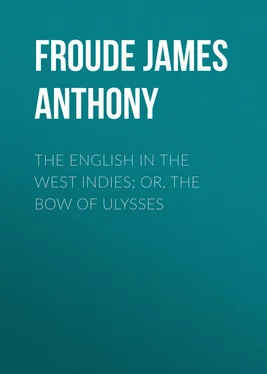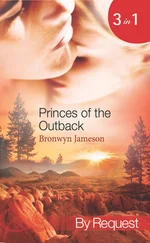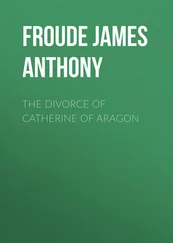James Froude - The English in the West Indies; Or, The Bow of Ulysses
Здесь есть возможность читать онлайн «James Froude - The English in the West Indies; Or, The Bow of Ulysses» — ознакомительный отрывок электронной книги совершенно бесплатно, а после прочтения отрывка купить полную версию. В некоторых случаях можно слушать аудио, скачать через торрент в формате fb2 и присутствует краткое содержание. Жанр: foreign_antique, foreign_prose, Путешествия и география, на английском языке. Описание произведения, (предисловие) а так же отзывы посетителей доступны на портале библиотеки ЛибКат.
- Название:The English in the West Indies; Or, The Bow of Ulysses
- Автор:
- Жанр:
- Год:неизвестен
- ISBN:нет данных
- Рейтинг книги:5 / 5. Голосов: 1
-
Избранное:Добавить в избранное
- Отзывы:
-
Ваша оценка:
- 100
- 1
- 2
- 3
- 4
- 5
The English in the West Indies; Or, The Bow of Ulysses: краткое содержание, описание и аннотация
Предлагаем к чтению аннотацию, описание, краткое содержание или предисловие (зависит от того, что написал сам автор книги «The English in the West Indies; Or, The Bow of Ulysses»). Если вы не нашли необходимую информацию о книге — напишите в комментариях, мы постараемся отыскать её.
The English in the West Indies; Or, The Bow of Ulysses — читать онлайн ознакомительный отрывок
Ниже представлен текст книги, разбитый по страницам. Система сохранения места последней прочитанной страницы, позволяет с удобством читать онлайн бесплатно книгу «The English in the West Indies; Or, The Bow of Ulysses», без необходимости каждый раз заново искать на чём Вы остановились. Поставьте закладку, и сможете в любой момент перейти на страницу, на которой закончили чтение.
Интервал:
Закладка:
There was another side to all this magnificence which also might be turned to account by an enterprising enemy. There were some thousands of wretched Irish, who had been transplanted thither after the last rebellion, and were bound under articles to labour. These might be counted on to rise if an invading force appeared; and there were 60,000 slaves, who would rebel also if they saw a hope of success. They were ill fed and hard driven. On the least symptom of insubordination they were killed without mercy: sometimes they were burnt alive, or were hung up in iron cages to die. 3 3 Labat seems to say that they were hung up alive in these cages, and left to die there. He says elsewhere, and it may be hoped that the explanation is the truer one, that the recently imported negroes often destroyed themselves, in the belief that when dead they would return to their own country. In the French islands as well as the English, the bodies of suicides were exposed in these cages, from which they could not be stolen, to convince the poor people of their mistake by their own eyes. He says that the contrivance was successful, and that after this the slaves did not destroy themselves any more.
In the French and Spanish islands care was taken of the souls of the poor creatures. They were taught their catechism, they were baptised, and attended mass regularly. The Anglican clergy, Labat said with professional malice, neither baptised them nor taught them anything, but regarded them as mere animals. To keep Christians in slavery they held would be wrong and indefensible, and they therefore met the difficulty by not making their slaves into Christians. That baptism made any essential difference, however, he does not insist. By the side of Christianity, in the Catholic islands, devil worship and witchcraft went on among the same persons. No instance had ever come to his knowledge of a converted black who returned to his country who did not throw away his Christianity just as he would throw away his clothes; and as to cruelty and immorality, he admits that the English at Barbadoes were no worse than his own people at Martinique.
In the collapse of West Indian prosperity which followed on emancipation, Barbadoes escaped the misfortunes of the other islands. The black population being so dense, and the place itself being so small, the squatting system could not be tried; there was plenty of labour always, and the planters being relieved of the charge of their workmen when they were sick or worn out, had rather gained than lost by the change. Barbadoes, however, was not to escape for ever, and was now having its share of misfortunes. It is dangerous for any country to commit its fortunes to an exclusive occupation. Sugar was the most immediately lucrative of all the West Indian productions. Barbadoes is exceptionally well suited to sugar-growing. It has no mountains and no forests. The soil is clean and has been carefully attended to for two hundred and fifty years. It had been owned during the present century by gentlemen who for the most part lived in England on the profits of their properties, and left them to be managed by agents and attorneys. The method of management was expensive. Their own habits were expensive. Their incomes, to which they had lived up, had been cut short lately by a series of bad seasons. Money had been borrowed at high interest year after year to keep the estates and their owners going. On the top of this came the beetroot competition backed up by a bounty, and the Barbadian sugar interest, I was told, had gone over a precipice. Even the unencumbered resident proprietors could barely keep their heads above water. The returns on three-quarters of the properties on the island no longer sufficed to pay the expenses of cultivation and the interest of the loans which had been raised upon them. There was impending a general bankruptcy which might break up entirely the present system and leave the negroes for a time without the wages which were the sole dependence.
A very dark picture had thus been drawn to me of the prospects of the poor little island which had been once so brilliant. Nothing could be less like it than the bright sunny landscape which we saw from the deck of our vessel. The town, the shipping, the pretty villas, the woods, and the wide green sea of waving cane had no suggestion of ruin about them. If the ruin was coming, clearly enough it had not yet come. After breakfast we went on shore in a boat with a white awning over it, rowed by a crew of black boatmen, large, fleshy, shining on the skin with ample feeding and shining in the face with innocent happiness. They rowed well. They were amusing. There was a fixed tariff, and they were not extortionate. The temperature seemed to rise ten degrees when we landed. The roads were blinding white from the coral dust, the houses were white, the sun scorching. The streets were not the streets described by Labat; no splendid magazines or jewellers' shops like those in Paris or London; but there were lighters at the quays loading or unloading, carts dashing along with mule teams and making walking dangerous; signs in plenty of life and business; few white faces, but blacks and mulattoes swarming. The houses were substantial, though in want of paint. The public buildings, law courts, hall of assembly &c. were solid and handsome, nowhere out of repair, though with something to be desired in point of smartness. The market square would have been well enough but for a statue of Lord Nelson which stands there, very like, but small and insignificant, and for some extraordinary reason they have painted it a bright pea-green.
We crept along in the shade of trees and warehouses till we reached the principal street. Here my friends brought me to the Icehouse, a sort of club, with reading rooms and dining rooms, and sleeping accommodation for members from a distance who do not like colonial hotels. Before anything else could be thought of I was introduced to cocktail, with which I had to make closer acquaintance afterwards, cocktail being the established corrective of West Indian languor, without which life is impossible. It is a compound of rum, sugar, lime juice, Angostura bitters, and what else I know not, frisked into effervescence by a stick, highly agreeable to the taste and effective for its immediate purpose. Cocktail over, and walking in the heat being a thing not to be thought of, I sat for two hours in a balcony watching the people, who were thick as bees in swarming time. Nine-tenths of them were pure black; you rarely saw a white face, but still less would you see a discontented one, imperturbable good humour and self-satisfaction being written on the features of every one. The women struck me especially. They were smartly dressed in white calico, scrupulously clean, and tricked out with ribands and feathers; but their figures were so good, and they carried themselves so well and gracefully, that, although they might make themselves absurd, they could not look vulgar. Like the old Greek and Etruscan women, they are trained from childhood to carry heavy weights on their heads. They are thus perfectly upright, and plant their feet firmly and naturally on the ground. They might serve for sculptors' models, and are well aware of it. There were no signs of poverty. Old and young seemed well-fed. Some had brought in baskets of fruit, bananas, oranges, pine apples, and sticks of sugar cane; others had yams and sweet potatoes from their bits of garden in the country. The men were active enough driving carts, wheeling barrows, or selling flying fish, which are caught off the island in shoals and are cheaper than herrings in Yarmouth. They chattered like a flock of jackdaws, but there was no quarrelling; not a drunken man was to be seen, and all was merriment and good humour. My poor downtrodden black brothers and sisters, so far as I could judge from this first introduction, looked to me a very fortunate class of fellow-creatures.
Читать дальшеИнтервал:
Закладка:
Похожие книги на «The English in the West Indies; Or, The Bow of Ulysses»
Представляем Вашему вниманию похожие книги на «The English in the West Indies; Or, The Bow of Ulysses» списком для выбора. Мы отобрали схожую по названию и смыслу литературу в надежде предоставить читателям больше вариантов отыскать новые, интересные, ещё непрочитанные произведения.
Обсуждение, отзывы о книге «The English in the West Indies; Or, The Bow of Ulysses» и просто собственные мнения читателей. Оставьте ваши комментарии, напишите, что Вы думаете о произведении, его смысле или главных героях. Укажите что конкретно понравилось, а что нет, и почему Вы так считаете.












